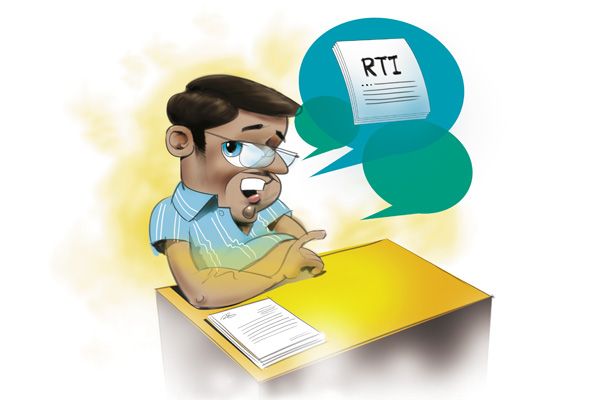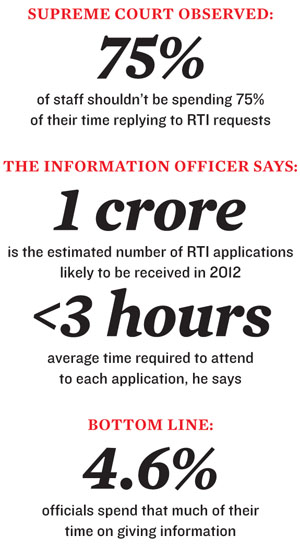TRIPARTITE LABOUR CONFERENCE DECISION
Minimum Wages Act Coverage for all Employments
Raising the Wage Ceiling in the Employees Provident Fund, Enhancement of Pension under Employees Pension Scheme 95, Portability of PF Account, Reduction in the Requirement of Minimum Continuous Service, Etc.
Stress on Matching the Large Scale Skilling Targets with Creating Similar Number of Openings in the Area of Employment
Maternity Leave Under the Maternity Benefit Act be Increased from the Present Level of 12 Weeks to 24 Weeks
Union Labour & Employment Minister Shri Mallikarjun Kharge today detailed about the recommendations made during the 44th Indian Labour Conference concluded at Vigyan Bhavan, New Delhi. Addressing the media persons he said this Session of the Indian Labour Conference had elaborate discussions on three agenda items - (i) Minimum Wages (ii) Social Security and (iii) Employability and Employment.
The Conference was inaugurated by Hon'ble Prime Minister of India. The Conference was attended by Labour Ministers from 14 State Governments. All the major 12 Central Trade Union Organisations and 6 major employers' organisation participated in the Conference. Besides, senior officials from 23 Central Ministries and all State Governments/UTs attended the Conference. The International Labour Organisation Experts based at Delhi were also present.
Shri Kharge referred the Prime Minister inaugural address in which he emphasized the great importance that the UPA Government attaches to the promotion of healthy industrial relations and well being of our workforce.
Shri Kharge said our huge unorganized sector poses great challenges in ensuring quality employment and extension social security coverage. Minimum Wages are an important means of protecting the interest of the workers were not in the formal sector. Our flagship health insurance scheme "Rashtriya Swasthya Bima Yojana" has covered 2.5 crore Below Poverty Line families and this Scheme is being extended to cover other category of workers.
According to the minister the Conference Committee on "Minimum Wages" recommended that the Minimum Wages Act should cover all employments and thus facilitate India's ratification of ILO's Convention No.131. There was convergence of views towards making National Minimum Wages and make it applicable to any employment irrespective of the number of workers engaged. Objective suggestions were made for linking minimum wages with NSSO Consumer Expenditure Survey and inflation.
Also the Conference Committee on "Social Security" had very focused discussion and came out with specific recommendations in the areas of raising the wage ceiling in the Employees Provident Fund, enhancement of pension under Employees Pension Scheme 95, portability of PF Account, reduction in the requirement of minimum continuous service, etc. The Committee addressed the gender issues by recommending enhancement of maternity leave. The MSME Sector and unorganized sector workers received special attention of the committee members. Our Ministry's RSBY Scheme has achieved a lot of success and various recommendations were received for bringing other category of workers under its coverage and adding other type of benefits in addition to the existing ones.
Moreover, the Conference Committee on "Employability and Employment" recommendations laid stress on matching the large scale skilling targets with creating similar number of openings in the area of employment. Labour intensive industries need to be promoted and protected. The forthcoming National Employment Policy should be able to provide enabling framework for facilitating employment generation and decent work in the unorganized sector. The Labour Market Information System should give real time information about skill requirements and skill availability. Other innovative suggestion were bringing the traditional skills under the certification system and involving MSMEs in skill development. The road map for skilling 500 million persons by 2022 should be finalized in consultation with the tripartite partners.
Shri Kharge said, this Session of the Conference carried forward the rich tradition of healthy social dialogue, spirit of accommodation and keeping interest of our workforce as the top most priority. The tripartite partners have shown full concern to the important responsibility we have towards our country's growth and safeguarding the basic interest of our workers. We will be very closely following up with the implementation of policy solutions arrived at the Conference and the same will be reviewed in the meeting of the next Standing Labour Committee.
The Recommendations of the Conference Committee on Employability and Employment are:
1. Employment generation and Employability should be top agenda of the Govt.
2. Though lot of focus is being laid on training of 500 million persons by 2022, there is a need to take appropriate measures for creation of employment opportunities to offer the matching employment.
3. There is an urgent need to declare the National Employment Policy in order to provide enabling framework for facilitating employment generation and decent working conditions for all.
4. Investment in labour intensive industries should be promoted and incentivised.
5. Labour Market Information System should be established to get skill requirement from the industry and available skills from the institutes. In this regard, employment exchanges may be modernized for providing virtual job market on real time basis.
6. Skill mapping should be done at the local level and inventory of skill assets should be created.
7. ITIs should also focus on sectors beyond manufacturing and should concentrate on service sector. There is urgent need for quality assurance measures in training of ITIs and instructors.
8. Emphasis should be laid on development of infrastructure including storage, processing and marketing in rural areas and agro-based industries.
9. ITIs should focus more on popular trades keeping in view the requirement of the local industries.
10. Institutional arrangements for providing training in traditional skills should be encouraged and may brought under certification system.
11. Public awareness programme should be taken up, particularly in rural areas regarding the importance of skill development and certification of traditional skills.
12. There should be functional and spatial integration of State and Central infrastructure and other available resources for optimal utilization of resources.
13. MSMEs should be encouraged and supported to participate in the skill development efforts.
14. Stipend of apprentices under the Apprentices Act should be enhanced.
15. Existing and new Centres of Excellence/Clusters in traditional crafts should be strengthened and provided support in terms of marketing, credit, new technology, etc. to promote self-employment.
16. Barriers should be removed from skilling and certification of illiterate and uneducated workers.
17. Entrepreneurship and self-employment should be encouraged by providing necessary support.
18. Existing employment in the unorganized sector should be safeguarded by assuring access to natural resources for those sectors dependent on them. In order to increase their productivity, appropriate advanced tools and technology for traditional producers should be developed.
19. Skill development should be promoted among the women and differently-abled persons. To increase participation of women in skill development, special measures should be taken.
20. Centres of Excellence should be established at the national and State levels which will produce world-class technicians.
21. National level consultation with all the stakeholders should be held immediately to finalize the road-map for preparing skill development plan leading to skilled force of 500 million persons by 2022.
22. Comprehensive steps should be taken to create environment for employment generation and protection.
23. Trainers should be trained in large numbers to meet growing requirement.
During the Conference a Committee was constituted to discuss Agenda Item No.(i) concerning Minimum Wages and related issues. These issues, inter alia, include norms for fixation/revision of minimum rates of wages, Variable Dearness Allowance(VDA), National Floor Level Minimum Wages etc. On the basis of detailed discussion, the following points emerged.
1. There was consensus that the Government may fix minimum wages as per the norms/ criteria recommended by the 15th ILC (1957) and the directions of the Hon'ble Supreme Court (Repttakos Co. Vs Workers' Union) 1992. The Government may take necessary steps accordingly.
2. There was a broad consensus that the Minimum Wages Act should cover all employments and the existing restriction for its applicability on the scheduled employments only should be deleted. This will also help India ratify ILO Convention No.131.
3. It was broadly agreed that there should be national minimum wages applicable to all employments throughout the country.
4.There was broad agreement on the amendment proposals as listed out in Para 5(iv, v & x).
5. In respect of 5 (iv), it was pointed out that the payment to the apprentices should be treated differently from the other categories.
6.The Committee noted that at present there are 12 States/UTs who have not adopted VDA. There was a broad consensus that all States/Uts should adopt VDA.
7. It was also recommended that the payment of minimum wages should be done through Banks/Post Offices etc.
8. As regards 5(vi), it was felt that the enforcing agencies should not be given the power of adjudication and, therefore, this proposal should be re-examined.
9. The proposal of paying different minimum wages in respect of same employment either in the Centre or in the State should be done away with.
A Conference Committee was also constituted to discuss the agenda item No. (iii) i.e. "Social Security". On the basis of detailed discussions, the following points emerged :-
(i) There was a broad-based consensus that the wage ceiling for the application of EPF Act be increased from the present level of Rs.6,500/- to Rs.10,000/- or Rs.15,000/- as already applicable for the ESI Corporation. Similarly, the ceiling for workers covered under EPF Act be reduced from 20 to 10. However, Laghu Udyog Bharati was not agreeable to this reduction in ceiling of number of workers.
(ii) Minimum pension under the EPS 95 be increased to some floor level, which should not be less than Rs.1,000/-, since a large number of workers receive pension which is less than that provided by the State Governments for elderly people which is normally in the range of Rs.400/- to Rs.1000/-.
(iii) The PF Accounts be computerized urgently so that the workers are able to avail the facility of PF transfer and settlement immediately. Smart Cards like RSBY be issued to PF account holders.
(iv) Minimum ceiling of 5 years of continuous service be reduced in case of gratuity and gratuity be made transferable in case of change of job by the employee.
(v) The maternity leave under the Maternity Benefit Act be increased from the present level of 12 weeks to 24 weeks. Thsis increased maternity benefits be made available only upto two children, while the lower limit be continued for more than two children.
(vi) Accountability on the part of organizations implementing the social security schemes be fixed in order to ensure that the beneficiaries receive the deliverables in time. Citizen Charters for these organizations be finalized early.
ST/-
(Release ID :80348)PIB
M.Krishnan
Secretary General NFPE




